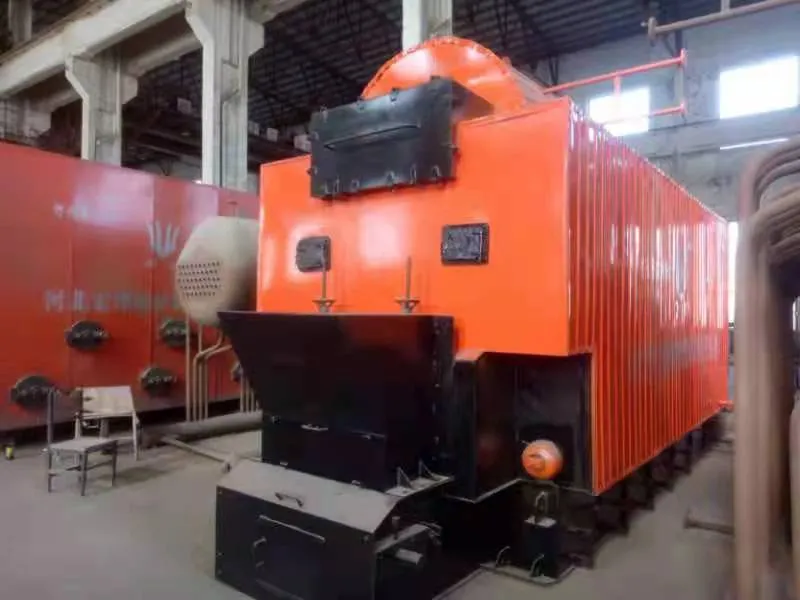
Dec . 03, 2024 17:29 Back to list
steam boiler cleaning chemicals
Steam Boiler Cleaning Chemicals Essential Solutions for Efficient Operation
Steam boilers play a crucial role in various industrial processes, including power generation, manufacturing, and heating systems. Over time, these systems can accumulate scale, sludge, and other deposits that hinder their efficiency and can lead to costly downtimes and repairs. To maintain optimal performance and extend the lifespan of steam boilers, it is essential to implement regular cleaning processes using effective cleaning chemicals.
Importance of Cleaning Steam Boilers
The buildup of dirt, scale, and corrosion inside steam boilers can significantly reduce their efficiency. Scale formation, often caused by hard water, acts as an insulating barrier, increasing fuel consumption while decreasing heat transfer. Additionally, sludge and other deposits can lead to overheating, which can cause serious structural damage and threaten safety. Regular cleaning not only restores optimal heat transfer but also enhances operational safety and prolongs the equipment’s life.
Types of Boiler Cleaning Chemicals
Numerous chemical cleaning agents are available for steam boiler maintenance, and their effectiveness can depend on the specific type of deposits being addressed. Here are some of the most common categories
1. Acid-Based Cleaners These are widely used to dissolve calcium carbonate and other mineral scales. Common acids include hydrochloric acid, sulfuric acid, and citric acid. Acid cleaning is highly effective but must be handled carefully to avoid damage to the boiler’s components.
2. Alkaline Cleaners Alkaline cleaning agents are used to manage oil, grease, and organic contaminants. They typically contain sodium hydroxide or potassium hydroxide, which help emulsify and remove build-up. This type of cleaner is particularly effective in feedwater systems.
3. Surfactants These compounds help in penetrating and loosening deposits, making it easier for other chemicals to do their job. Surfactants can be used in conjunction with acidic or alkaline cleaners to enhance their performance.
4. Corrosion Inhibitors These chemicals are employed to prevent the formation of rust and corrosion in boiler systems, especially in areas prone to moisture. They are often used in conjunction with cleaning agents to provide added protection post-cleaning.
steam boiler cleaning chemicals

5. Biocides Biological growth can pose significant risks, leading to fouling and reduced efficiency in boiler operations. Biocidal agents help control bacterial and algal growth, ensuring clean and efficient water treatment.
Cleaning Process
The cleaning process typically involves several steps
1. Preparation Before cleaning, it’s essential to shut down the boiler and allow it to cool. Proper safety measures should be taken to ensure that personnel are protected from chemical exposure.
2. Chemical Application Depending on the type of deposits, the appropriate cleaning chemical is then introduced. This can be done through methods such as circulation cleaning or soaking, where the chemical solution is allowed to act on the deposits for a specified period.
3. Rinsing After the cleaning has been completed, the system should be thoroughly rinsed with water to remove any residual chemicals and loosened deposits.
4. Inspection Upon completion of the cleaning, a thorough inspection of the boiler is necessary. This ensures that all deposits have been effectively removed and that there are no signs of damage.
5. Preventive Measures To minimize the need for extensive cleaning in the future, implementing water treatment processes, including softening and demineralization, can be highly beneficial.
Conclusion
Maintaining the efficiency of steam boilers through regular cleaning is essential for safe and cost-effective operations. The appropriate selection of cleaning chemicals, combined with a systematic cleaning process, can significantly improve boiler performance and lifespan. Investing in proper cleaning regimens not only enhances operational efficiency but also reduces the likelihood of unexpected failures and downtime, ultimately leading to significant cost savings in the long run. Therefore, industrial operators should prioritize regular maintenance and employ the right cleaning chemicals to ensure their steam boilers operate at peak performance.
-
High-Efficiency Commercial Oil Fired Steam Boiler for Industry
NewsJul.30,2025
-
High-Efficiency Biomass Fired Thermal Oil Boiler Solutions
NewsJul.30,2025
-
High Efficiency Gas Fired Thermal Oil Boiler for Industrial Heating
NewsJul.29,2025
-
High-Efficiency Gas Fired Hot Water Boiler for Sale – Reliable & Affordable
NewsJul.29,2025
-
High Efficiency Biomass Fired Hot Water Boiler for Industrial and Commercial Use
NewsJul.29,2025
-
High-Efficiency Biomass Fired Hot Water Boiler for Industrial Use
NewsJul.28,2025
Related PRODUCTS






















